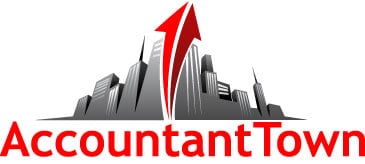Accounting Comptroller Careers Guide
When deciding on what type of a career path you wish to follow in the accounting field, one must compare the different opportunities.
A comptroller is responsible for managing the accounting and financial reporting functions of a company. This job may also exist inside a company, but it is more often referred to as a budget or financial controller outside of the public sector. The job will involve evaluating and approving all financial papers related to the financial operations of a business. To succeed in this position, one must be familiar with internal controls, auditing procedures, and the day-to-day activities of an office.
Once appointed as comptroller, an individual will have a variety of tasks and obligations. The comptroller’s primary duties include approving or disapproving all financial reports and annual reports that pertain to a company’s finances. Additionally, they are responsible for supervising the accounting department and executing various tasks connected to the organization’s accounting and financial reporting. Several of these responsibilities involve examining the organization’s financial statements and approving their contents. Additionally, the comptroller examine the organization’s financial records for anomalies or odd transactions.
How Do You Become a Comptroller?
Accounting is regarded as the business language, and candidates for comptroller must show proficiency in a range of accounting tasks. The comptroller of a business is often one of the highest-ranking accounting executives in a firm, reporting directly to the chief financial officer. Apart from supervising subordinate accountants, the comptroller conducts internal audits to verify that the firm adheres to both national Generally Accepted Accounting Principles and International Financial Reporting Standards while doing business in international markets. Because comptroller is a senior post, there are many procedures that a student must complete to be considered for the position.
To prepare for becoming a comptroller, students should do the following.
1. Academic PrerequisitesA bachelor’s degree in accounting is almost usually the educational basis upon which comptrollers build their careers. Finance, economics, and business administration are other undergraduate degrees pursued by prospective comptrollers. Future comptrollers who pursue such alternative degree programs often pursue a master’s degree in accounting.
2. Opportunities for InternshipsInternships are a big deal in the business world, and most recognized accounting degree programs now include internships in their curriculum.
3. Certifications and LicensesAlmost all comptrollers are licensed and have earned the title of certified public accountant (CPA). The CPA license is the most widely recognized certification in the accounting profession area, and it is the primary means by which employers validate a candidate’s understanding of the subject. Apart from a bachelor’s degree from an approved accounting school, the CPA certification requires 150 semester credit hours of accounting or business coursework, passing a four-part comprehensive test, and supervised job experience.
4. Membership in Professional AssociationsThe majority of accounting certificates need ongoing study and, in some instances, periodic examinations.
What are the functions of a comptroller?
Comptrollers are accountable for many elements of a government agency, company, or non-profit organization’s financial operations. They oversee budgets, ensuring that all departments remain within their anticipated budget. Comptrollers are also accountable for constituent satisfaction.
Several of the most often performed tasks in this job include the following:
- Managing public money with the utmost efficiency and effectiveness
- Supervising the development and administration of departmental budgets
- Maintaining a record of anticipated and actual expenditures
- Observing and supervising periodic audits
- Financial record-keeping and statement preparation
- Utilizing computer software to keep track of transactions and financial information
- Assuring that federal and state tax filing obligations are met
- Financial policy and process formulation and revision
Possible job titles
As a comptroller, you may find jobs with one of many titles or a combination of names other than comptroller.
Among these titles are the following:
- Deputy Comptroller
- Financial Comptroller
- Financial Control Officer
- Financial Officer
- Finance Manager
- Business Manager
- Administrator Accountant
Estimated Salary of Comptroller
The yearly pay of a comptroller (and comparable financial management jobs) varies according to the size of the company and the comptroller’s degree of education. Here are some statistics.
- Comptrollers at the entry level make about $45,000
- Comptrollers at the median level make about $121,750
- Best Paid Comptrollers earn around $225,500
According to the United States Bureau of Labor Statistics, the anticipated growth rate for the job through 2026 is approximately 19%, which is much greater than the national average. While there are certain criteria that must be met in order to be considered for the job of business comptroller, the majority of them pale in contrast to experience and skill. These qualities are acquired through many years of carefully chosen accounting jobs, and they are usually required to become a comptroller.
Accounting made easy, for FREE!

Access the contact form and send us your feedback, questions, etc. We are always welcome to help someone out. You can also contact us if you wish to submit your writing, cartoons, jokes, etc. and we will consider posting them to share with the world! The Facebook and LinkedIn groups are also good areas to find people interested in accounting like yourself, don’t hesitate to join as everyone of all levels are welcome to become part of the community.
